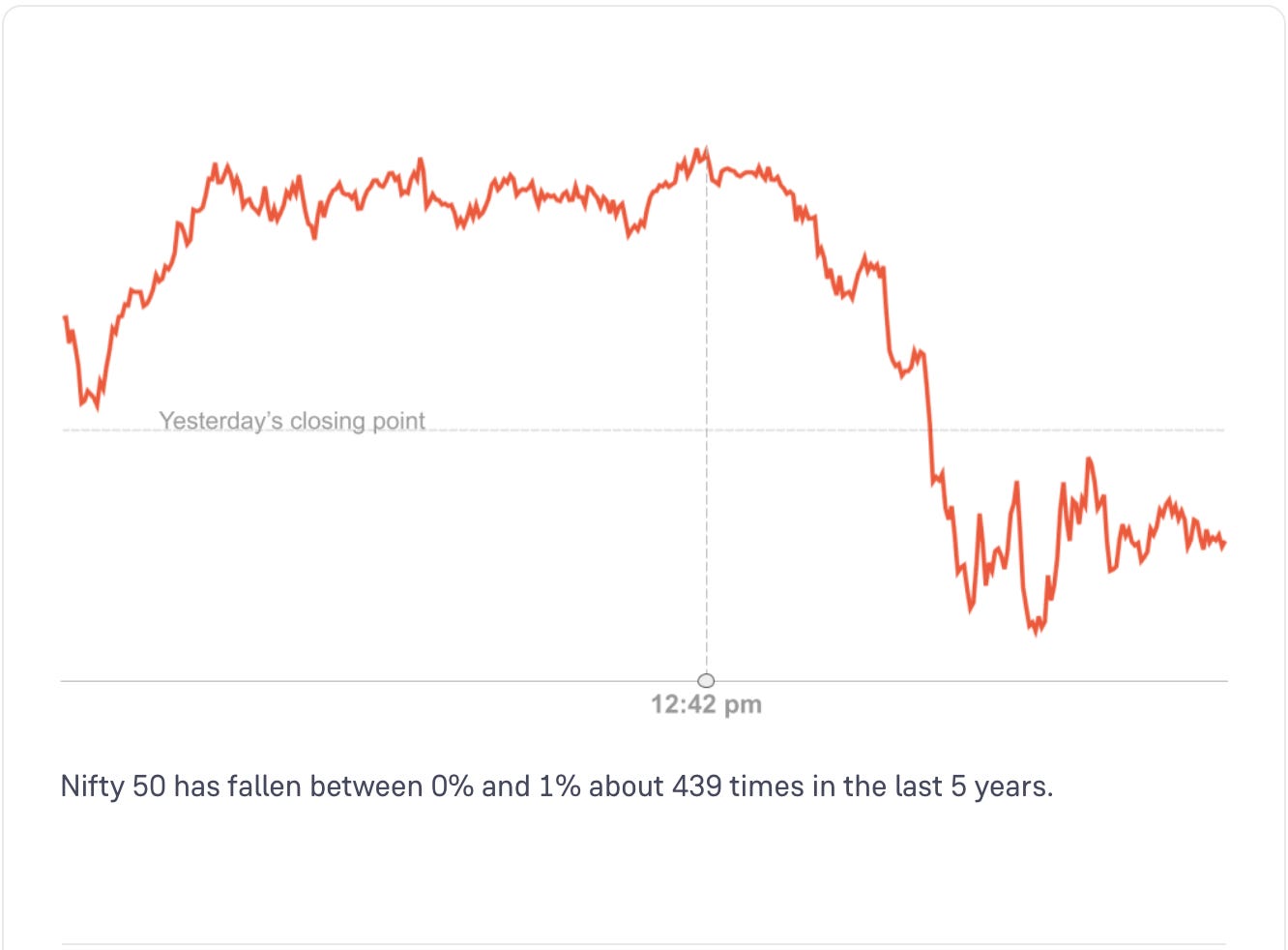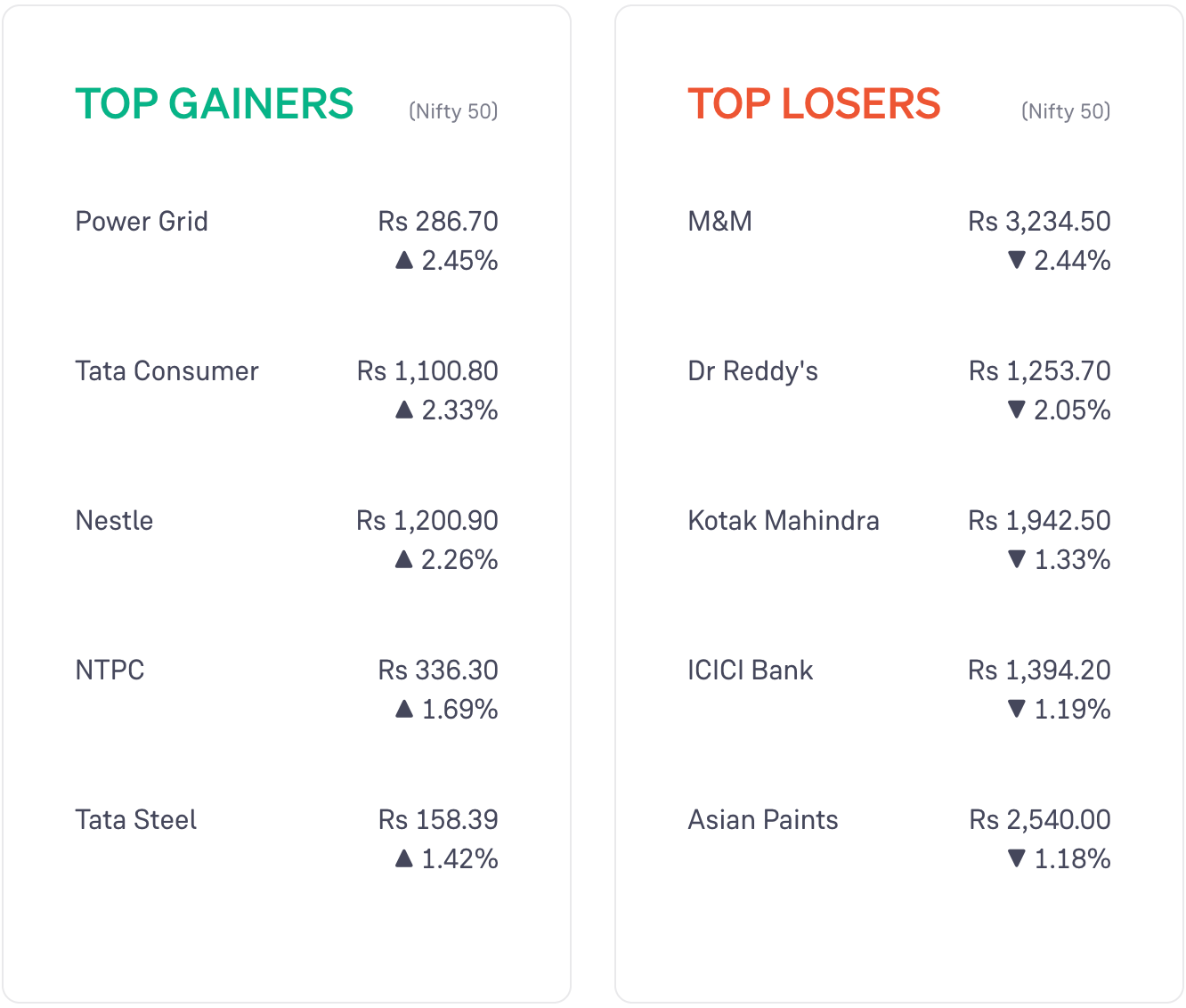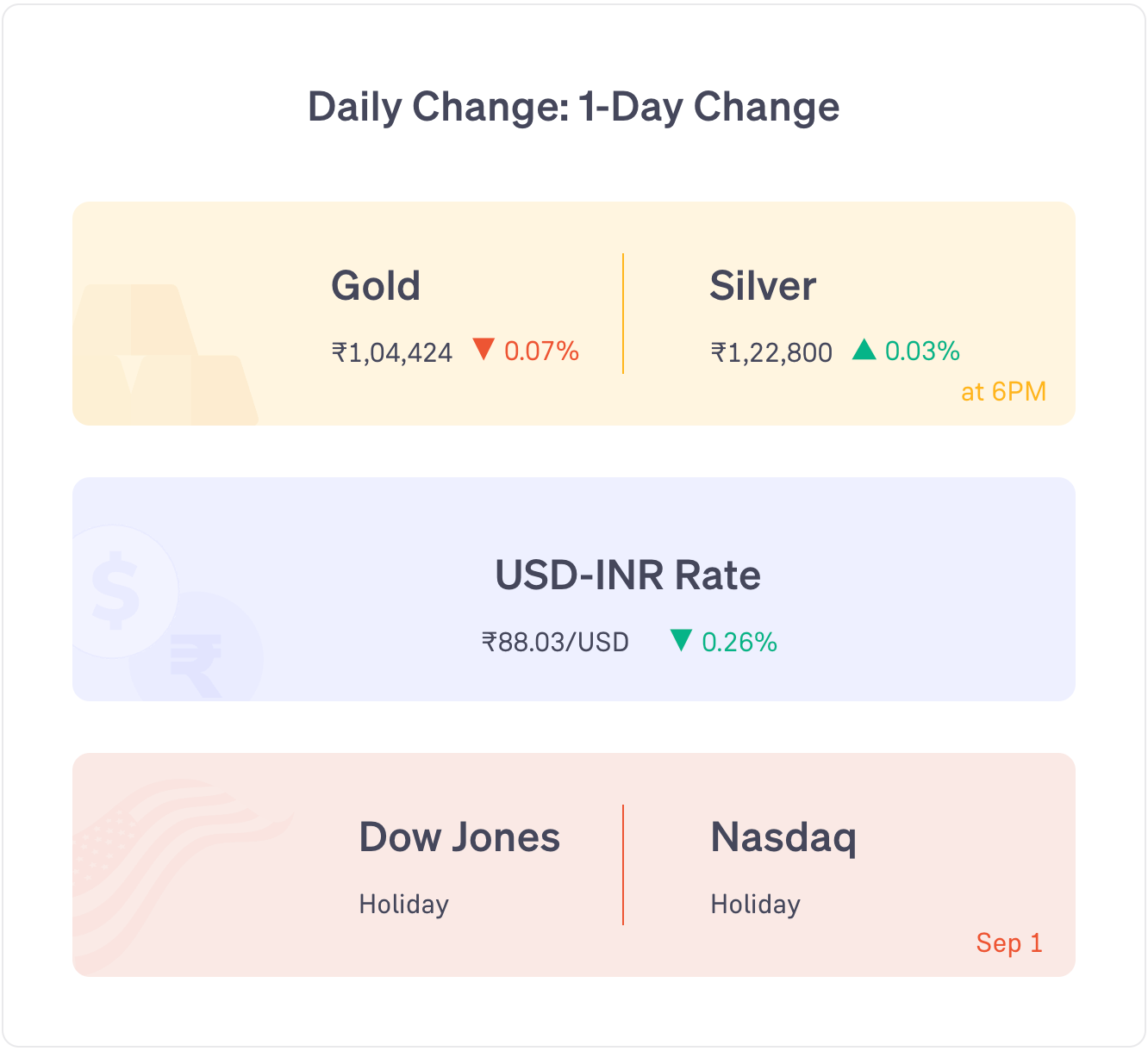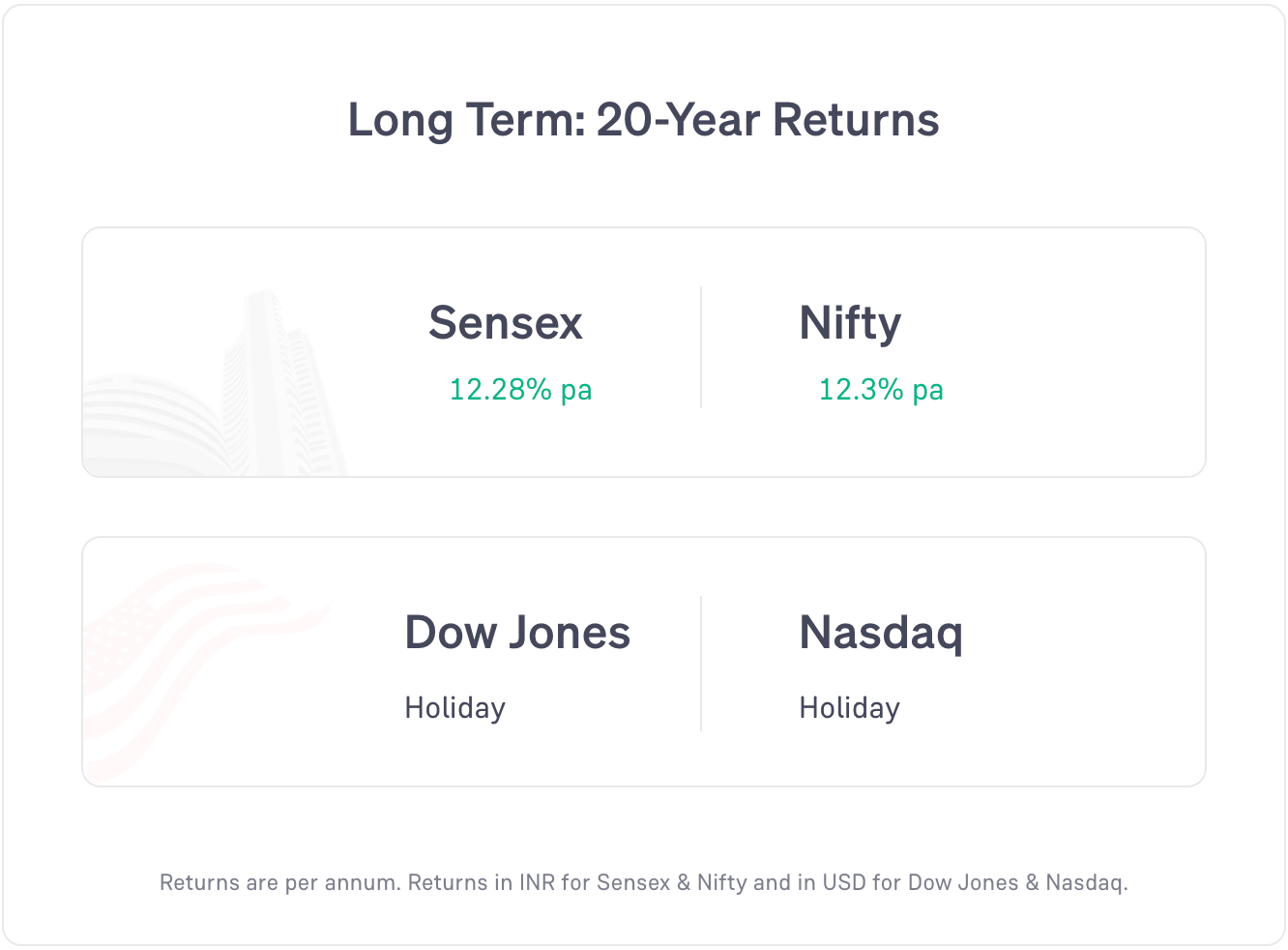SMBC to acquire a stake in Yes Bank, TCS signs 550 million Euros deal, & more - Groww Digest
Tuesday, 2 September 2025
Markets opened above yesterday’s closing point.
Nifty 50 fell in the second half of the day and closed in red.
FMCG stocks and media stocks rose the most today. Private bank stocks and healthcare stocks fell the most.
Global markets: US markets were closed on account of Labor Day. Most Asian markets closed in red. Most European markets fell (as of 6 pm IST).
News
SEBI issued a new framework for monitoring intraday position in equity derivatives. The new framework will take effect from 1 Oct.
Reliance Jio added 4.83 lakh wireless subscribers in July, Airtel added 4.64 lakh, while Vodafone Idea lost 3.59 lakh and BSNL lost 1.01 lakh: TRAI.
SEBI approved the confidential IPO of Imagine Marketing, the parent company of electronics brand boAt: as per media reports.
Euro Area's annual inflation rose to 2.1% in August (vs 2% in July). Core inflation (excluding energy, food, alcohol & tobacco) remained unchanged at 2.3%: as per preliminary data.
Stocks Updates
Adani Power: received government approval to start mining at 6.5 MTPA Dhirauli coal block in MP, which will provide fuel for its power plants.
BHEL: received a favourable CGST appellate order which nullifies a Rs 31.20 crore tax demand.
TCS: signed a 7-year deal worth 550 million Euros with ‘Tryg’ (a Nordic insurance company) to upgrade its systems using AI and cloud across its insurance business.
Yes Bank: the CCI has approved Sumitomo Mitsui Banking Corp’s (SMBC) acquisition of a 20% stake in the company for $1.6 billion.
NTPC Green: commenced operation for 25 MW solar capacity at Bhuj, Gujarat.
Word of the Day
Credit Rating
It is a score that indicates how reliable you are in paying back a loan on time
A credit rating agency gives a 3-digit score to a person or company that borrows money.
It measures your creditworthiness, i.e. how worthy you are of receiving credit.
The score is calculated considering various factors like repayment histories across different debts, number of outstanding loans, credit balance, etc.
The higher your credit score, the higher are your chances of getting a favourable interest rate on a loan from banks.
6 Day Course
Theme: shareholder meeting
Day 2: Tuesday
What are the topics that are discussed at AGMs?
The topics are larger business related matters.
Individual and small matters are not discussed — like day-to-day running of the business, small challenges, local/regional opportunities, etc.
The company’s audited financial reports are also released.
Auditors are appointed or re-appointed for the next financial year.
Declaration of dividends is made (if any).
Appointment of directors are made if any are changing/being replaced.
Business related operations may be discussed.
Shareholders have the right to ask questions and also propose solutions. AGMs usually have a window allocated to questions and answers from shareholders.
These are a part of the standard agenda or ordinary business in the AGM.
There are also meetings for special business and extra-ordinary general meetings.
Featured Question
“In yesterday's feature question you explained how the percentage of shares changes when new shares are created but when new shares are created and total market Capitalization of the company is same it means that the price of one share of the company will decrease and the value of holdings of the shareholder will decrease and thus shareholders will be at loss so it is a deal of loss. Please correct me if I'm wrong.”
Good catch.
If the company is the same, and it has created more shares, shouldn’t the price of one share also reduce?
It would reduce — if the fresh shares were created and given away for free.
But that is not what is happening.
The newly created shares are sold for money. That money is now a part of the company.
So, the company’s market capitalisation (also called m-cap) actually goes up — it does not remain the same.
The total cash of the company has increased after the fresh issue of shares.
This is why the share price does not fall. The newly raised cash justifies the share price.
Sometimes, the money raised might not be enough. Maybe there’s an outstanding loan and the company needs even more money.
In such cases, the share price continues falling — though the freshly raised money can reduce the effect.
In case of healthy companies, the freshly raised capital can greatly aid the company’s future.
So its share price might rise much higher after the cash is raised by selling fresh shares.
It depends on the company, the cash raised, and how the cash affects the company.
Did you like this edition?
Leave a feedback here!






